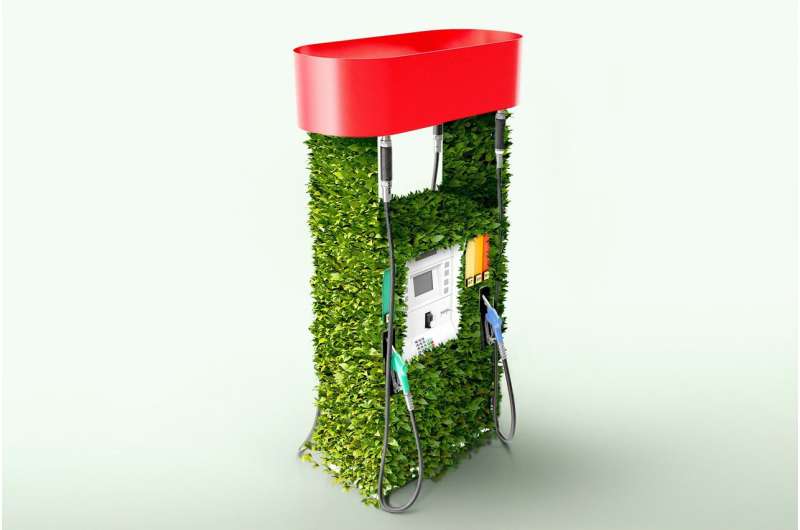Canada finally has a climate plan that will let it meet its carbon targets by 2030

I've studied Canadian climate policy debates for three decades. Over that time, by my count, there has been seven national climate targets and nine climate plans. None has been credible—with the exception of the plan released last week by Prime Minister Justin Trudeau's government.
Previous climate plans have followed a similar pattern. The government of the day announces a bold yet distant emissions target with great fanfare. Years later, a much less bold plan is released. Then, limited follow-through even on that. Popular but ineffective subsidies have been adopted. Regulations expected to have the biggest impact have been delayed by years of consultations, then shelved.
Finally, a new government takes over, blames their predecessors' inaction and announces a more distant target, followed by another inadequate plan. And so on.
Canada has adopted emissions reductions targets at international climate change summits. But it failed to meet its Rio de Janeiro target for the year 2000, exceeding it by 21 percent and its Kyoto 2010 target by 22 percent. Canada is on track to miss its Copenhagen 2020 target by a similar degree.
Aware of our failure, Canadians have called for stronger climate action. But, skeptical of the depth of that commitment, politicians of all stripes have offered plans that hid the costs and exaggerated the effectiveness of their climate policies.
Parties' ability to call out their opponents' bogus plans has been limited because their own plans also lacked credibility. The effect has been false reassurance that we can reduce our carbon footprints without having a negative impact on consumer prices or local industries.
Spending, regulation and carbon pricing
To be sure, some provinces have adopted effective policies, and the federal government has built on those in recent years, including by extending Ontario's coal-fired electricity ban and British Columbia's and Québec's carbon pricing policies across the country. Yet those measures still fell short of the reductions needed to meet Canada's 2030 Paris Agreement target by 25 percent.
Against that backdrop, I was cynical about the prospect of yet another climate plan. But this one is a credible plan to meet—and slightly exceed—Canada's current target to reduce emissions to 30 percent below 2005 levels by 2030.
Undoubtedly the plan also will take many Canadians by surprise. They may be encouraged by the promise of $15 billion in spending. After decades of good news plans, Canadians can be forgiven for thinking we can fix the climate with tax dollars. Public spending on e-vehicle charging networks, building retrofits and transit infrastructure are certainly needed.
But the heavy lifting in this plan will be done by regulation and, especially, more than tripling the national carbon price between 2022 and 2030. That will be controversial. After all, we've heard all the arguments before, in B.C., Alberta, Ontario and the 2019 federal election.
"Carbon pricing doesn't work!" We know from research on B.C."s carbon tax that it does, though also that deeper reductions require higher prices.
"It's unfair." Opponents of carbon pricing intentionally ignore what happens to tax revenues. In provinces subject to the federal carbon tax, all the money is returned to households. Roughly 80 percent of families get more back than they pay. Low-income households gain the most.
"Someone else should pay!" After decades of denial and recalcitrance, it's tempting to say all reductions should come from industry. But the consequence is that we will either miss our targets—industry accounts for only half of Canada's emissions—or suffer bigger impacts on consumers and Canada's economy.
Others suggest flexible regulations, which seek to approximate the cost-effectiveness of carbon pricing sector by sector. That approach fares better in public opinion polls, because consumers are unaware that it will cost them more, to say nothing of injecting multi-year delays to develop each standard.
A moment of truth
For the first time, a Canadian government is being honest about what it will take to meet our 2030 target and begin the transition to net-zero emissions. Yes, there are costs, but they're less than the costs of inaction. Our economy will continue to grow, but with a shift to job creation in lower-carbon sectors.
Conservatives will argue that they can meet the same target in a different way. The Greens and NDP will stress that limiting warming to 1.5 C demands deeper reductions. Fair enough. But with a credible plan finally on the table, politicians who want to win the support of Canadians must justify how their policies will deliver the same or greater reductions, at what cost and to whom.
How can we trust their numbers? All parties could agree on an independent body, such as the parliamentary budget office, to analyze their climate plans ahead of the next federal election. If they're not willing, Canadians will rightly ask why not.
This is a long-overdue moment of truth for Canada. After three decades of pretending, it's time for honesty from our politicians—and we must be willing to hear it.
Provided by The Conversation
This article is republished from The Conversation under a Creative Commons license. Read the original article.![]()




















